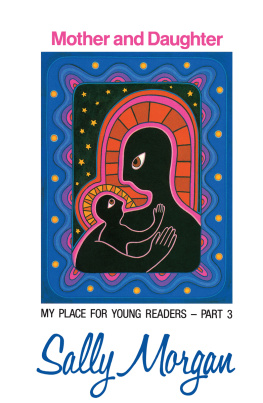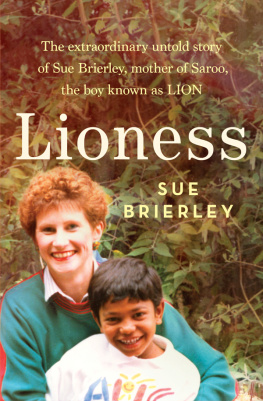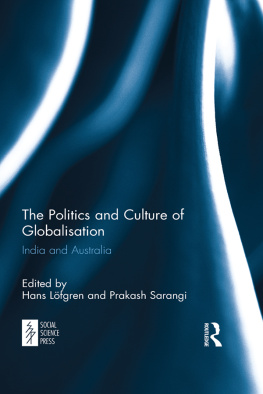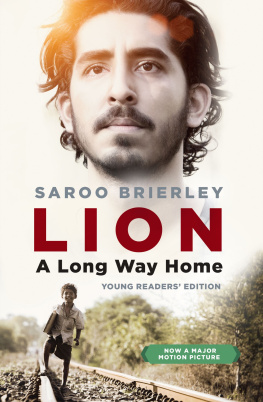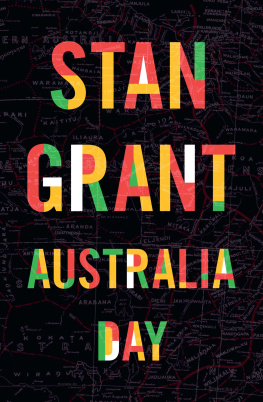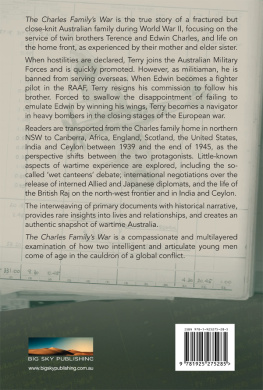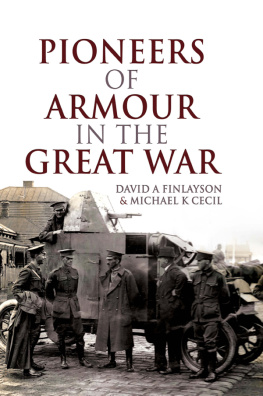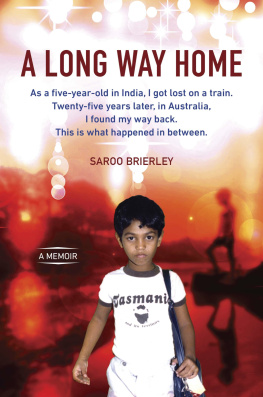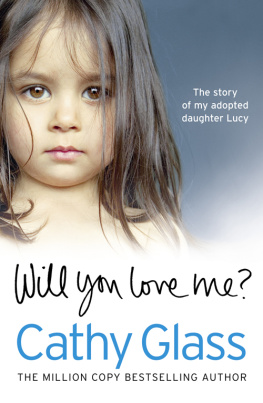Saroo Brierly - A Long Way Home
Here you can read online Saroo Brierly - A Long Way Home full text of the book (entire story) in english for free. Download pdf and epub, get meaning, cover and reviews about this ebook. year: 2013, genre: Non-fiction. Description of the work, (preface) as well as reviews are available. Best literature library LitArk.com created for fans of good reading and offers a wide selection of genres:
Romance novel
Science fiction
Adventure
Detective
Science
History
Home and family
Prose
Art
Politics
Computer
Non-fiction
Religion
Business
Children
Humor
Choose a favorite category and find really read worthwhile books. Enjoy immersion in the world of imagination, feel the emotions of the characters or learn something new for yourself, make an fascinating discovery.
- Book:A Long Way Home
- Author:
- Genre:
- Year:2013
- Rating:5 / 5
- Favourites:Add to favourites
- Your mark:
- 100
- 1
- 2
- 3
- 4
- 5
A Long Way Home: summary, description and annotation
We offer to read an annotation, description, summary or preface (depends on what the author of the book "A Long Way Home" wrote himself). If you haven't found the necessary information about the book — write in the comments, we will try to find it.
A Long Way Home — read online for free the complete book (whole text) full work
Below is the text of the book, divided by pages. System saving the place of the last page read, allows you to conveniently read the book "A Long Way Home" online for free, without having to search again every time where you left off. Put a bookmark, and you can go to the page where you finished reading at any time.
Font size:
Interval:
Bookmark:
A
Long
Way
Home
Saroo Brierley
with Larry Buttrose

For Guddu
Contents
A Long Way Home
Prologue
T heyve gone.
Ive been thinking about this day for twenty-five years. Growing up half a world away, with a new name and a new family, wondering whether I would ever see my mother and brothers and sister again. And now here I am, standing at a door near the corner of a run-down building in a poor district of a small, dusty town in central Indiathe place I grew upand no one lives here. Its empty.
The last time I stood on this ground, I was five years old.
The door, its hinges broken, is so much smaller than I remember it as a childnow I would have to bend over to fit through it. Theres no point in knocking. Through the window, as well as some gaps in the familiar crumbling brick wall, I can see into the tiny room my family shared, the ceiling only a little higher than my head.
This was my worst fear, so paralyzing that I suppressed it almost completelythat once I finally found my home, after years of searching, my family wouldnt be in it.
Not for the first time in my life, Im lost and I dont know what to do. This time Im thirty, Ive got money in my pocket and a ticket to the place I now call home, but I feel just like I did on that railway platform all those years agoits hard to breathe, my mind is racing, and I wish I could change the past.
Then the neighbors door opens. A young woman in red robes comes out of the better-maintained flat next door, holding a baby in her arms. Shes curious, understandably. I look Indian, but my Western clothes are probably a little too new, my hair carefully styledIm obviously an outsider, a foreigner. To make matters worse, I cant speak her language, so when she speaks to me, I can only guess that shes asking me what I want. I remember barely any Hindi, and Im not confident about how to pronounce the little I do know. I say, I dont speak Hindi, I speak English, and Im astonished when she responds, I speak English, a little. I point at the abandoned room and recite the names of the people who used to live thereKamla, Guddu, Kallu, Shekilaand then I point to myself and say, Saroo.
This time the woman remains silent. Then I remember something Mum gave me back in Australia, for just this situation. I scrabble around in my daypack and pull out a page with color photographs of me as a child. Again I point to myself, and then say little as I point to the boy in the photographs. Saroo.
I try to remember who lived next door to us when this was my home. Was there a little girl who could now be this woman?
She stares at the page, then at me.
Im not sure if she understands, but this time she speaks, in hesitant English.
People... not live here... today, she says.
Although she is only confirming what I know, to hear her say it aloud hits me hard. I feel dizzy. Im left standing there in front of her, unable to move.
Ive always known that even if I managed to find my way back here, my family might have moved. Even in my short time with them, they had moved here from another place. Poor people often dont have much say in where they live, and my mother used to have to take whatever work she could get.
These are the thoughts that start coming out of the box Ive put them in. The other possibilitythat my mother is deadI jam back inside.
A man who has noticed us approaches, so I start my mantra over again, reciting the names of my mother, Kamla, my brothers, Guddu and Kallu, my sister, Shekila, and me, Saroo. He is about to say something when another man wanders up and takes over. Yes? How can I help? he says in clear English.
This is the first person Ive been able to talk to properly since I arrived in India, and my story comes tumbling out quickly: I used to live here when I was a little boy, I went off with my brother and got lost, I grew up in another country, I couldnt even remember the name of this place, but now Ive found my way back here, to Ganesh Talai, to try to find my mother, my brothers, and my sister. Kamla, Guddu, Kallu, Shekila.
He looks surprised at the story, and I recite the family names yet again.
After a moment, he says, Please wait here. Ill be back in two minutes.
My mind races with possibilitieswhat has he gone to get? Someone who might know what happened to them? An address, even? But has he understood who I am? I dont have to wait long before hes back. And he says the words Ill never forget:
Come with me. Im going to take you to your mother.

Remembering
W hen I was growing up in Hobart, I had a map of India on my bedroom wall. My mummy adoptive mother had put it there to help me feel at home when I arrived from that country at the age of six to live with them in 1987. She had to teach me what the map representedI was completely uneducated. I didnt even know what a map was, let alone the shape of India.
Mum had decorated the house with Indian objectsthere were some Hindu statues, brass ornaments and bells, and lots of little elephant figurines. I didnt know then that these werent normal objects to have in an Australian house. She had also put some Indian printed fabric in my room, across the dresser, and a carved wooden puppet in a brightly colored outfit. All these things seemed sort of familiar, even if I hadnt seen anything exactly like them before. Another adoptive parent might have made the decision that I was young enough to start my life in Australia with a clean slate and could be brought up without much reference to where Id come from. But my skin color would always have given away my origins, and anyway, she and my father chose to adopt a child from India for a reason, as I will go into later.
The maps hundreds of place-names swam before me throughout my childhood. Long before I could read them, I knew that the immense V of the Indian subcontinent was a place teeming with cities and towns, with deserts and mountains, rivers and forests the Ganges, the Himalayas, tigers, gods!and it came to fascinate me. I would stare up at the map, lost in the thought that somewhere among all those names was the place I had come from, the place of my birth. I knew it was called Ginestlay, but whether that was the name of a city, or a town, or a village, or maybe even a streetand where to start looking for it on that mapI had no idea.
I didnt know for certain how old I was, either. Although official documents showed my birthday as May 22, 1981, the year had been estimated by Indian authorities, and the date in May was the day I had arrived at the orphanage from which I had been offered up for adoption. An uneducated, confused boy, I hadnt been able to explain much about who I was or where Id come from.
At first, Mum and Dad didnt know how Id become lost. All they knewall anyone knewwas that Id been picked off the streets of Calcutta, as it was still known then, and after attempts to find my family had failed, I had been put in the orphanage. Happily for all of us, I was adopted by the Brierleys. So to start with, Mum and Dad would point to Calcutta on my map and tell me thats where I came frombut in fact the first time I ever heard the name of that city was when they said it. It wasnt until about a year after I arrived, once Id made some headway with English, that I was able to explain that I didnt come from Calcutta at alla train had taken me there from a train station near Ginestlay. That station might have been called something like Bramapour, Berampur... I wasnt sure. All I knew was that it was a long way from Calcutta, and no one had been able to help me find it.
Of course, when I first arrived in Australia, the emphasis was on the future, not the past. I was being introduced to a new life in a very different world from the one Id been born into, and my new mum and dad were putting a lot of effort into facing the challenges that experience brought. Mum didnt worry too much about my learning English immediately, since she knew it would come through day-to-day use. Rather than trying to rush me into it, she thought it was far more important at the outset to comfort and care for me, and gain my trust. You dont need words for that. She also knew an Indian couple in the neighborhood, Saleen and Jacob, and we would visit them regularly to eat Indian food together. They would speak with me in my own language, Hindi, asking simple questions and translating instructions and things Mum and Dad wanted me to know about how wed live our life together. Being so young when I got lost and coming from a very basic background, I didnt speak much Hindi, either, but being understood by someone was a huge help in becoming comfortable about my new surroundings. Anything my new parents werent able to communicate through gestures and smiles, we knew Saleen and Jacob could help us with, so we were never stuck.
Next pageFont size:
Interval:
Bookmark:
Similar books «A Long Way Home»
Look at similar books to A Long Way Home. We have selected literature similar in name and meaning in the hope of providing readers with more options to find new, interesting, not yet read works.
Discussion, reviews of the book A Long Way Home and just readers' own opinions. Leave your comments, write what you think about the work, its meaning or the main characters. Specify what exactly you liked and what you didn't like, and why you think so.



